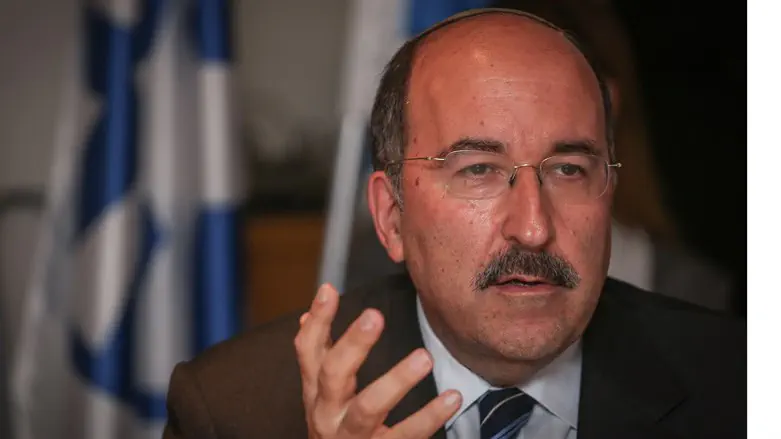
(JNS) When the present Israeli government came to power, one of the tangible changes of policy in comparison with the previous Netanyahu government was in the area of energy policy.
Former Prime Minister Benjamin Netanyahu and Energy Minister Yuval Steinitz had stressed the vital importance for Israel of extracting natural gas from the newly discovered fields in the eastern Mediterranean. In contrast, current Energy Minister Karine Elharrar declared in Dec. 2021 that Israel would no longer award licenses for natural gas exploration within Israel’s economic zone during the upcoming year. Instead, she stressed that 2022 would be “the year of renewable energies” and that “natural gas can wait.” In the year ahead, the Energy Ministry would set aside the policy recommendations made by the previous government’s report on natural gas policy, which specifically recommended further gas exploration.
Israel now appears to be in the midst of another major shift in its gas export policy for 2022. True, Elharrar recently stated in an interview that “the energy future of the world is green, not gas.” But the Russia-Ukraine war has altered gas markets yet again. The land battles in Ukraine have forced the Europeans to come up with a new strategy to keep the same quantities of gas flowing, albeit from new sources, given the fact that nearly 40% of Europe’s gas supply comes from Russia, which is seeking to use that leverage to retaliate against European governments that support Ukraine.
In July 2022, 26 out of 27 E.U. member states agreed to limit natural gas consumption. They also sought to diversify their gas supplies, which meant, above all, cutting back on Russian imports, which they decided would be reduced by two-thirds by the end of 2022.
In June 2022, senior European officials began visiting the states of the eastern Mediterranean with greater frequency in order to formalize their access to the best alternative they had to Russian gas. For example, the E.U. signed an MOU with both Israel and Egypt that would increase natural gas exports to Europe. The European Commission President Ursula von der Leyen was in Cairo on June 17 to announce a new gas forum for export of natural gas to Europe.
The European states have been taking a number of steps to deal with the impending gas crisis. First, Europe is preparing to increase its usage of liquefied natural gas (LNG). Second, there is a growing interest in reinforcing the global pipeline infrastructure for transporting gas. Thus, Algeria, Niger and Nigeria signed an MOU to build a 2,500-mile trans-Saharan pipeline.
There is also the EastMed pipeline project, which is planned to pass through the waters of Israel, Cyprus and Greece, reaching a length of 1,200 miles. Unfortunately, the Biden administration withdrew its support for the EastMed pipeline in Jan. 2022, even though it did not entail U.S. federal funding. The pipeline was supposed to be completed in 2025.
All of this is happening just as Europe’s need for new energy sources is soaring. Israel, Cyprus and Greece could significantly help Europe, as could the states of North Africa and eastern Africa if the required infrastructure for extracting and transferring gas were in place.
There are national security implications from these changes as well. When Iran backs Hezbollah threats to Israeli gas sources, it is undermining the well-being of Europe and not just Israel. This requires a unified Western strategy for energy rather than blindly following the ideology of “green energy,” which remains unproven.
Ambassador Dore Gold has served as president of the Jerusalem Center for Public Affairs since 2000. From June 2015 to Oct. 2016 he served as director-general of the Israeli Foreign Ministry. Previously he served as foreign policy adviser to Prime Minister Benjamin Netanyahu, Israel’s ambassador to the United Nations (1997-1999) and as an adviser to Prime Minister Ariel Sharon.
This article was first published by the Jerusalem Center for Public Affairs.